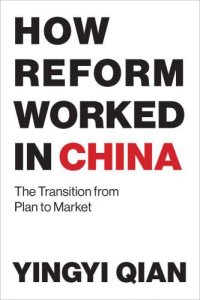
Ebook: How Reform Worked in China: The Transition from Plan to Market
Author: Qian Yingyi
- Tags: Central-local government relations, Central-local government relations--China, Central planning, Central planning--China, Decentralization in government, Decentralization in government--China, Economic policy, Federal government, Federal government--China, Mixed economy, Mixed economy--China, China -- Economic policy -- 2000-, Central planning -- China, Central-local government relations -- China, Federal government -- China, Decentralization in government -- China, Mixed economy -- China, China
- Series: The MIT Press
- Year: 2018
- Publisher: The MIT Press
- City: China
- Language: English
- azw3
As China has transformed itself from a centrally planned economy to a market economy, economists have tried to understand and interpret the success of Chinese reform. As the Chinese economist Yingyi Qian explains, there are two schools of thought on Chinese reform: the 'School of Universal Principles, ' which ascribes China's successful reform to the workings of the free market, and the 'School of Chinese Characteristics, ' which holds that China's reform is successful precisely because it did not follow the economics of the market but instead relied on the government. In this work, Qian offers a third perspective, taking certain elements from each school of thought but emphasizing not why reform worked but how it did.
Download the book How Reform Worked in China: The Transition from Plan to Market for free or read online
Continue reading on any device:

Last viewed books
Related books
{related-news}
Comments (0)